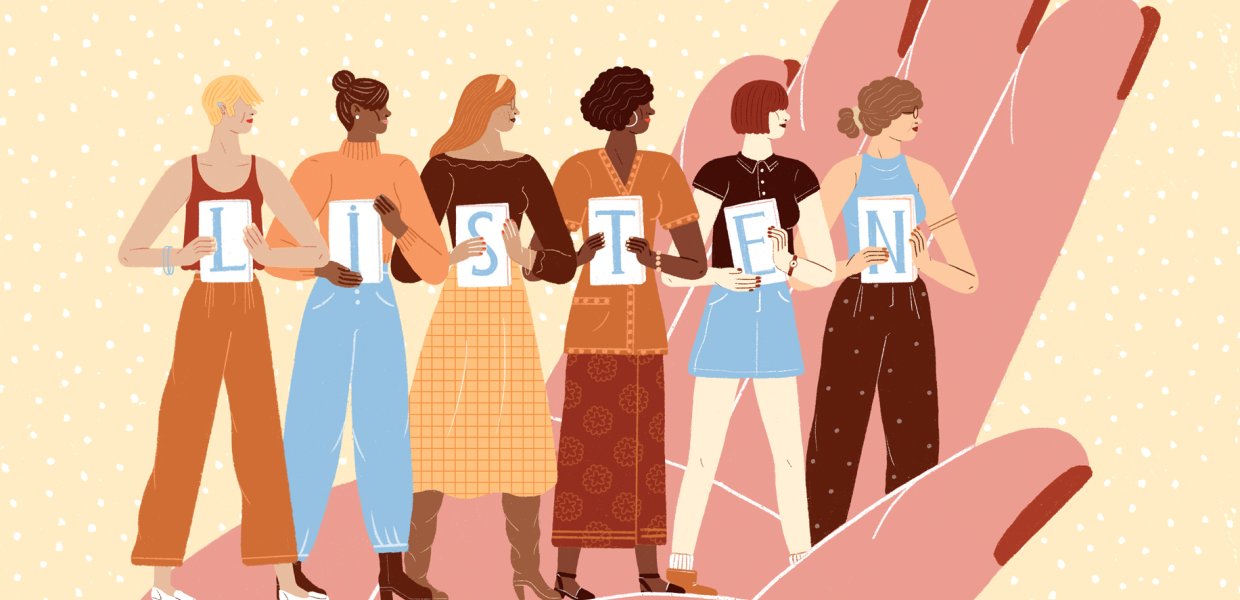Students create media for social change — with help from their professors, VICE Media and Gloria Steinem.
Feminism provided me with the framework I needed to respond to this dissonance as I constantly reasserted my power and agency. But it wasn’t until I examined my feminism in an academic context at USC Annenberg that I understood the different intersections of my identity and how much they have influenced the ways I engage with the world.
For me, the experience of taking the “WOMAN: Designing Media for Social Change” class gave me an overwhelming feeling of power and confidence. Co-taught by Sarah Banet-Weiser and Alison Trope, the class explored the confluence of gender, popular media and activism. The Emmy-nominated VICELAND team behind the documentary series WOMAN partnered with the professors and attended many of the classes, allowing for substantive, semester-long interactions with the decision-makers behind a powerful feminist project.
Our class first convened in spring 2018, three months after Ronan Farrow’s New Yorker article that sparked a resurgence in Tarana Burke’s #MeToo movement and a nationwide focus on harassment, intimidation and violence toward women. In many ways, our class felt like a microcosm of this cultural moment. What was unfolding around us — in the entertainment industry first, and then nearly everywhere else — echoed the focus of the course: thinking critically about structures of power, intersectional identities and the impact of marginalization on the human experience. This class was a testament to USC Annenberg’s position on the cutting edge of academe and industry. We were prepared to tackle the zeitgeist of this movement with clarity and academic rigor.
Throughout the class, we viewed episodes of WOMAN. After each episode, we would unpack and analyze it, as we often do in cultural studies and communication courses. In this case, our conversations with the creators, producers and distribution teams helped us understand the impetus behind each creative decision. This access was unlike any other I had experienced in a class, and it allowed me to interact with the material on an even deeper level.
As much as I appreciated access to the creators of WOMAN, the clear high point of the class was the visit by Gloria Steinem. The opportunity to engage in a small group discussion with such a cultural icon was surreal. She emphasized media’s ability to create new or shifted understandings of the world, calling on us to use this power to reach others with messages that shed light on places most often silenced or unheard. Our conversation was formative to my study of gender and helped me narrow the topic of my honors thesis to women’s reproductive health.
This focus helped catalyze my group’s final project, a zine titled Listen, that addressed the issue of sexual violence on college campuses. Our love for USC drove us to address concerns about problematic aspects of college culture. We believed that our zine could provide a critical intervention in creating community among survivors, who often suffer silently and without validation. Our message to the women featured in our zine, and to those who identify with their stories, was clear: We believe you.
My USC Annenberg education is about preparing me for a meaningful life and career — and also about making the most of my access to this institution and its boundless opportunity. My experience in the WOMAN class, and the community of friends and professors it connected me with, reminded me that I do have the power to dream big and to make the world a better, safer, more inclusive place for everyone.
This piece was originally published in the Spring 2019 issue of the USC Annenberg Magazine.
